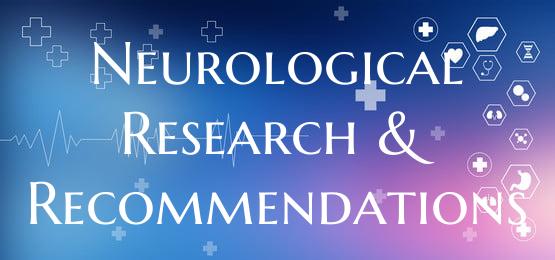
Neurological Research & Recommendations
Introduction: Neurological research plays a crucial role in advancing our understanding of the brain and nervous system, leading to significant advancements in the diagnosis, treatment, and management of neurological disorders. This article will explore recent trends in neurological research and provide valuable recommendations based on the latest findings in the field.
Current Trends in Neurological Research: 1. Genetic Studies: Researchers are increasingly focusing on understanding the genetic basis of neurological disorders, such as Alzheimer's disease, Parkinson's disease, and epilepsy. This has led to the identification of novel genetic markers and potential targets for personalized therapies.
2. Neuroimaging Technologies: Advanced neuroimaging techniques, such as functional magnetic resonance imaging (fMRI) and positron emission tomography (PET), have revolutionized the way we study the brain. These tools allow researchers to visualize brain activity in real-time and track changes associated with various neurological conditions.
3. Artificial Intelligence: Machine learning and artificial intelligence (AI) algorithms are being utilized to analyze large datasets of neurological information, leading to the development of predictive models for disease diagnosis and prognosis. AI is also being used to enhance treatment strategies and improve patient outcomes.
Recommendations for Future Directions: 1. Collaborative Research Efforts: Encouraging collaboration among researchers, clinicians, and industry partners is essential for accelerating progress in neurological research. Multidisciplinary teams can leverage their expertise to address complex neurological challenges more effectively.
2. Patient-Centered Approaches: Emphasizing patient-centered care in neurological research is crucial for understanding the lived experiences of individuals with neurological disorders. Incorporating patient perspectives can lead to the development of more tailored and effective treatment strategies.
3. Investment in Emerging Technologies: Continued investment in emerging technologies, such as wearable devices, telemedicine, and virtual reality, can enhance the diagnosis, monitoring, and management of neurological conditions. These technologies have the potential to revolutionize the way we deliver neurological care.
Conclusion: Neurological research is at the forefront of innovation, with new discoveries and technologies reshaping the landscape of neuroscience. By staying abreast of current trends and implementing strategic recommendations, we can accelerate progress towards improved outcomes for individuals with neurological disorders. Collaborative efforts, patient-centered approaches, and investment in emerging technologies will be key drivers in shaping the future of neurological research and care.